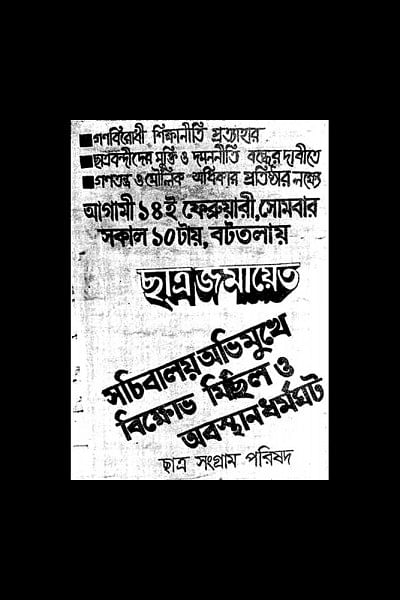Snapshot of reality

It's called Valentine's Day.
On February 14, one is required to wish his or her beloved a Happy Valentine's Day. It is celebrated across the world with great romantic fervours and enthusiasm. Over the years, the day has become popular also in Bangladesh.
It sounds cool, right? This can indeed be an occasion to spread the message of love and peace and vow to take stance against violence.
Festivity should always be welcomed and embraced. It's good for our mind, body and soul.
But how did we get Valentine's Day anyway?
According to the most accepted version, the day is named after a priest in Rome who lived in the days of Emperor Claudius II.
He was St Valentine.
I googled and found that under the rule of Claudius II, Rome was involved in many bloody campaigns. Claudius was having a difficult time getting soldiers to join his military. The reason, he believed, was that men were reluctant to leave their loved ones or families. So the mighty emperor cancelled all marriages and engagements as the only way out.
St Valentine stood against the regime. He secretly helped couples marry, and for this kind act he was condemned to be clubbed to death and to have his head cut off. He was executed on February 14, around the year 270 AD.
If all this is true, St Valentine is a martyr, a rebel. But let it not cross the mind of the couples roaming around the TSC area on February 14 for it might put a dampener on their jolly mood.
Why bother with history?
It makes our lives complicated as we already have a lot to deal with at present.
So we no longer remember Jafar, Dipali Saha, Zainal, Mozammel, Ayub Kanchan and others who were shot to death during a massive student protest against the education policy of Ershad regime on February 14, 1983.
This was probably the first martyrdom in the anti-autocracy movement of the 80s.
On February 28 the next year, law enforcers ran a truck over a peaceful procession. Two student leaders -- Selim and Delwar -- were crushed to death.
We also forgot Raufun Basunia, who laid down his life on February 13, 1985 for the same cause. (Needless to say, the month of February occupies a crucial place in our pro-democracy movement.)
Finally, following the supreme sacrifices of many others like Dr Milon (November 27, 1990) and Noor Hossain (November 10, 1987), dictator Ershad was ousted in 1990.
This was how we achieved democracy. At the cost of lives.
But hardly anyone now recalls Jafar, Dipali and other martyrs on February 14.
And lest we forget, Ershad still roams the political arena.
We are a democracy after all.

 For all latest news, follow The Daily Star's Google News channel.
For all latest news, follow The Daily Star's Google News channel. 



Comments